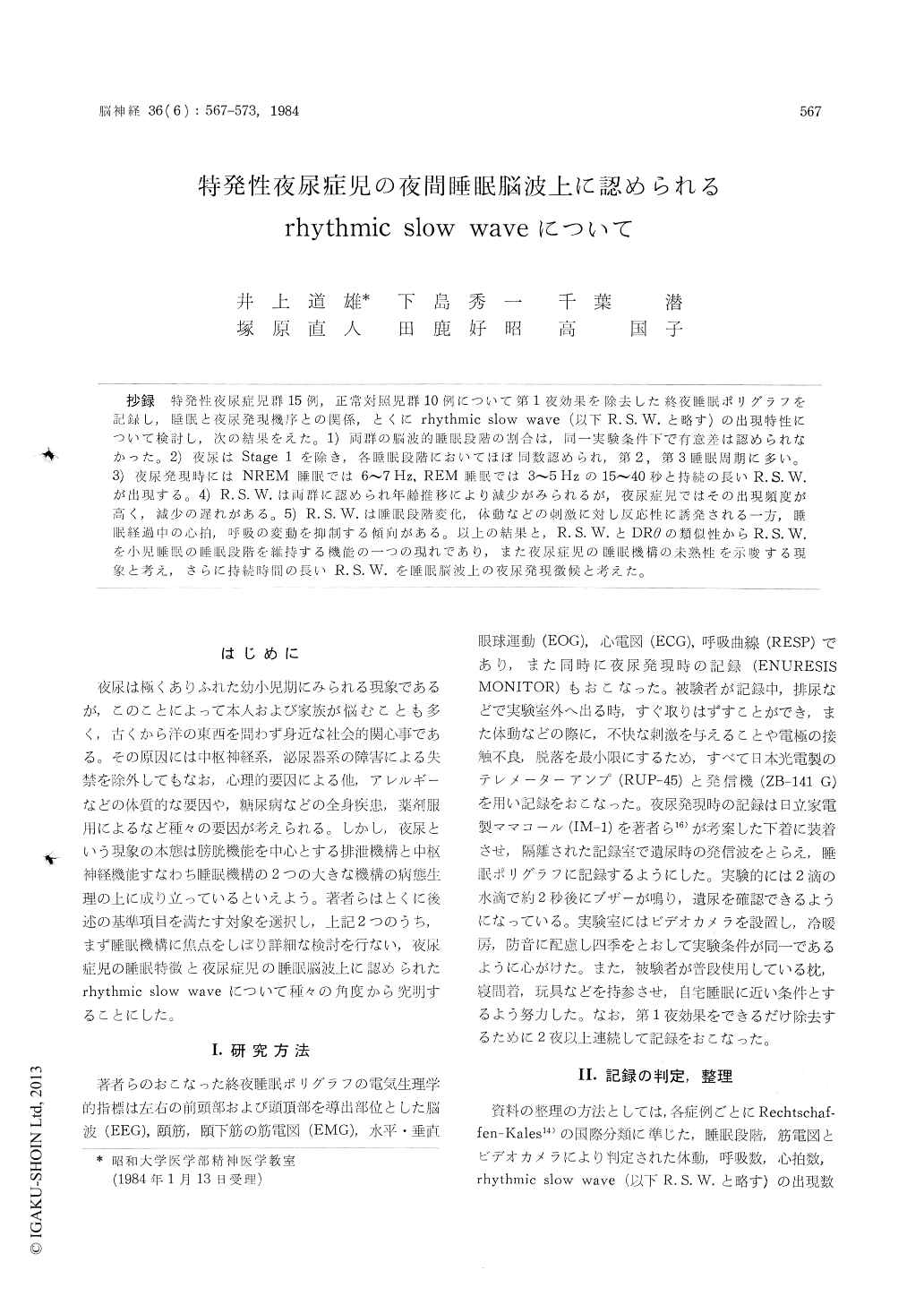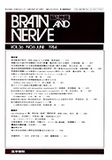Japanese
English
- 有料閲覧
- Abstract 文献概要
- 1ページ目 Look Inside
抄録 特発性夜尿症児群15例,正常対照児群10例について第1夜効果を除去した終夜睡眠ポリグラフを記録し,睡眠と夜尿発現機序との関係,とくにrhythmic slow wave (以下R.S.W.と略す)の出現特性について検討し,次の結果をえた。1)両群の脳波的睡眠段階の割合は,同一実験条件下で有意差は認められなかった。2)夜尿はStage 1を除き,各睡眠段階においてほぼ同数認められ,第2,第3睡眠周期に多い。3)夜尿発現時にはNREM睡眠では6〜7 Hz,REM睡眠では3〜5 Hzの15〜40秒と持続の長いR.S.W.が出現する。4) R.S.W.は両群に認められ年齢推移により減少がみられるが,夜尿症児ではその出現頻度が高く,滅少の遅れがある。5) R.S.W.は睡眠段階変化,体動などの刺激に対し反応性に誘発される一方,睡眠経過中の心的,呼吸の変動を抑制する傾向がある。以上の結果と,R.S.W.とDRθの類似性からR.S.W.を小児睡眠の睡眠段階を維持する機能の一つの現れであり,また夜尿症児の睡眠機構の未熟性を示唆する現象と考え,さらに持続時間長いR.S.W.を睡眠脳波上の夜尿発現徴候と考えた。
Whole-night sleep polygraph by removing the first-night effect was recorded for 15 cases of idiopathic nocturnal enuresis and 10 cases of nor-mal control, thereby, review was made on the relation between sleep and etiology of nocturnal enuresis as well as the appearing characteristics of rhythmic slow wave. (hereinafter referred to R. S. W.). Thus the following results were obtained.
1) Both groups of nocturnal enuresis and normal control showed no significant difference under the same experimental conditions for the rate of en-cephalogramic sleep stage.
2) Nocturnal enuresis was observed in nearly the same number of cases at any stage of sleep except Stage 1 (hereinafter referred to as S), and there were many cases in the second and third sleep cycles.
3) At the time of occurrence of nocturnal enur-esis, 6-7 Hz R. S. W. continued as long as 15-40 seconds in NREM-sleep. Also, 3-5 Hz R.S.W. was observed in REM sleep.
4) R. S. W. was observed even in normal cases, while its incidence was high in the cases of noc-turnal enuresis, and the decrease was observed with advancement of age, however, the decrease was delayed in the cases of nocturnal enuresis.
5) R. S. W. was provoked reactively against the stimuli such as the change in the electro-encepha-logramic sleep stage and body movements. On the other hand, there was an inhibitory tendency of the changes in heart rate and respiration dur-ing the appearance of R. S. W.
By the above result and the resemblance between R. S. W. and DRO, R. S. W. was considered to be a phenomenon of the function to keep the same stage of sleep in children, and it seems to suggest the prematurity of sleep mechanism of the children with nocturnal enuresis. Moreover, R. S. W. with longer sustained time was considered to be a sign of the occurronce of nocturnal enuresis on the electroencephalogram.

Copyright © 1984, Igaku-Shoin Ltd. All rights reserved.


